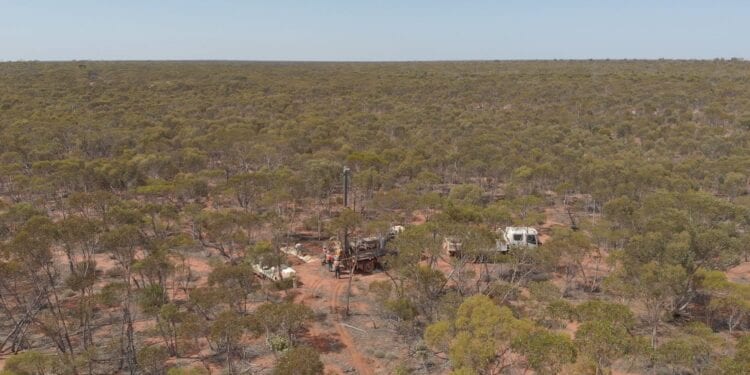New EM Modelling Identifies Large Conductors
Galileo Mining Ltd(ASX: GAL) has identified two large targets for drill testing at the Lantern East Prospect in the Fraser Range region of Western Australia.
Modelling of the new EM data has created two large and highly conductive models for drill testing at relatively shallow depths starting from 140m below surface.
Managing Director, Brad Underwood, said three new surveys were undertaken to complement the two existing EM data sets at the prospect. A total of five surface EM data sets have each confirmed the EM response on surface at the margin of a major gabbronorite intrusion.
“The additional EM surveys undertaken at Lantern East have enabled new models for the conductive response to be developed,” Mr Underwood said.
“The initial model drilled in September was helpful in that, while not intersecting the conductor, it nevertheless offered valuable insights to the modelling.
“We have since collected a lot more data confirming the response and we are aiming to locate the source in the next round of drilling.
“Conductive targets are important as they can represent large accumulations of sulphide minerals containing nickel and copper, and we hope that this is the situation at our Lantern East prospect.”
Drillholes LARC007 and LARC008D, completed in September, were drilled up-dip and into the initial conductive model respectively. While both drill holes intersected disseminated sulphide (pre-dominantly pyrrhotite1), no conductive source was identified. Downhole EM surveying of both drillholes confirmed the absence of any conductors within range of the downhole probe, which is estimated to be within an 80 metre radius of each of the holes.
Additional surface EM surveying was then undertaken to provide further data to support modelling of the observed conductive response. The original moving loop slingram EM survey and the original fixed loop EM survey were supplemented with a new slingram moving loop survey in an alternate orientation, and two new in-loop, moving loop surveys in separate directions.
All five surface EM data sets show conductive responses which can be modelled in slightly different locations within the sulphide target zone.
The new in-loop moving loop survey data has been modelled as a subvertical 430m long body, striking approximately 310 degrees, with a strong conductance of 2,500 Siemens. The depth below surface to the top of the body is 140 metres which is within range of RC drilling.
The revised fixed loop EM model has been created with a similar strike orientation but offset to the south of the in-loop model. The new fixed loop model has a shorter strike length of 145m and a stronger conductance of 3,925 Siemens. The depth below surface of this model is approximately 180m which is within range of RC drilling.
RC drilling of the new conductive targets at Lantern East is scheduled for late November subject to drill rig availability. Regional moving loop EM surveying is continuing to the north and the south of the Lantern prospect with an expected completion date of mid-November. Diamond drill core assays from the recent drill programme are still pending and are expected to be returned in the next two weeks.












